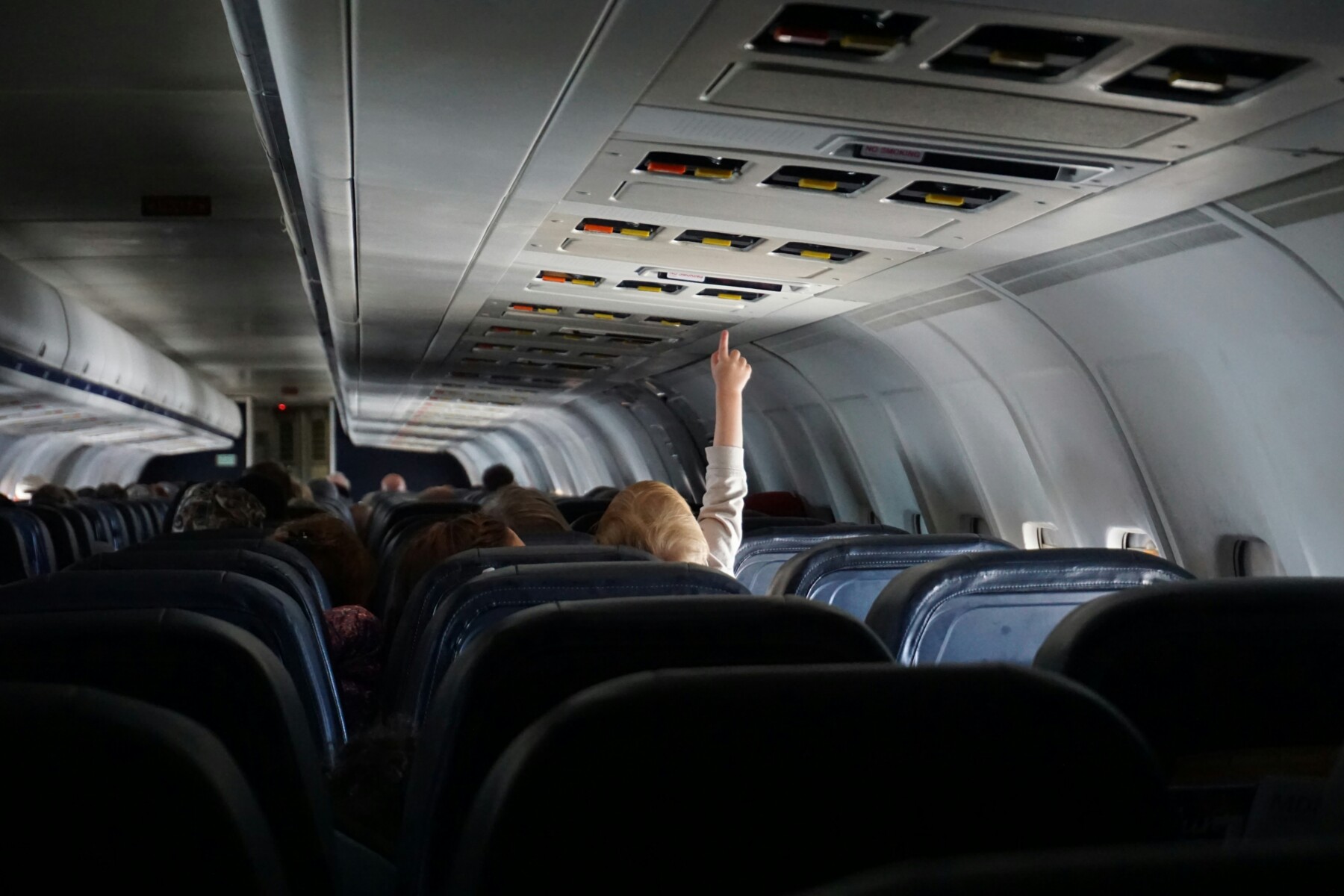Do I Need Permission to Take My Child Abroad?
In this comprehensive guide, family law expert Rachel Tiffen explains the key legal requirements for international and domestic travel with children in the UK. Designed for separated parents, guardians, and carers, this article outlines parental responsibility, child travel consent, and best practices to stay compliant with the Children Act 1989 and avoid potential legal disputes.
Why Permission Matters When Travelling With a Child
“I don’t give you permission to take the children abroad”, “you are not allowed to travel with the kids”, “I refuse to give you their passport”, “my lawyers say you’ll be abducting the children if you travel with them without my consent” – just a selection of the types of emails and WhatsApps one might see passing between separated parents. And you thought that travel with children was stressful when you were in a happy relationship….!
This article explores the English legal position on international travel with children after divorce. Do you need permission from your former partner/spouse to take your children abroad? Why do people often get it so wrong? This article seeks to address the questions most frequently asked.
Please note: by and large the law does not distinguish, in this context, between married and un-married couples. Therefore, except where expressly stated, the below article applies to travel with children (a) for married couples during, and after, a divorce; and (b) for unmarried couples, who are separated.
The starting position – (a) consent; and (b) documentation
The Starting Position – Consent and Documentation
The law is simple – to travel internationally with a child, you must have the permission/consent of all holders of ‘parental responsibility’ (“PR”, defined below) for that child. There are limited exceptions to this (see below).
The consent should be properly documented, as the travelling parent may be asked for evidence of their permission to travel with the child, and their relationship to the child, at the UK or foreign border. Some countries have specific requirements and specific forms that must be completed and it is important to check the position in advance. To evidence the legality of the travel, a travelling parent should take:
- The written consent of all those with PR in the form of an original signed letter, ideally with a copy of the passports of those PR holders giving their consent;
- Proof of their relationship with the child, such as copies of their birth or adoption certificates. This is particularly important where the travelling parent has a different surname to the children they are travelling with;
- Copies of the divorce (or marriage) certificate;
- Full contact details of the consenting PR holders; and
- Specifics of the trip such as flight and accommodation details and dates of both the outbound and return journey.
Depending on the particular circumstances, the non-travelling parent may, as a condition of their consent, insist on suitable assurances or undertakings from the travelling parent, to ensure the children’s return. If there is genuine concern as to child abduction/wrongful retention by the travelling parent, this can include a bond (payment of money) into Court to incentivise the travelling parent’s return with the children.
The travelling parent should provide the flight details, accommodation details and contact number while abroad to the non-travelling parent some time before the travel. While this is not a legal requirement per se, the Courts strongly encourage this information sharing, to encourage communication post-separation and also to allow indirect contact (such as phone calls) between the non-travelling parent and the children while they are abroad.
The exception to consent – a child arrangements order
The main exception to the need for obtaining the non-travelling parent’s consent, is if there is a child arrangements order (“CAO”) in place which specifies that the children are to ‘live with’ the travelling parent. In that instance, the person with the benefit of a ‘lives with order’ can travel with the children for up to 28 days, without the consent of the non-travelling parent. While this is the law, it is good practice/advisable for the travelling parent to discuss the proposed travel with the non-travelling parent in any event.
What is parental responsibility (“PR”) and who has it?
The scope and nuances of PR would take up an entire article in itself. But in simple terms, it is defined in s.3(1) Children Act 1989 as “all the rights, duties, powers, responsibilities and authority which by law a parent of a child has in relation to the child and his property.” The concept focusses on the responsibilities that a parent may have towards a child, rather than their rights as a parent.
A mother automatically has PR as a result of giving birth to the child. A father will have PR if he was married to the mother at the time of the child’s birth, or, if the parties are not married, if he is named on the child’s birth certificate. If none of these apply, a father may acquire PR by:
- By entering into a parental responsibility agreement with the mother;
- By applying to Court for a parental responsibility order;
- By subsequently marrying the mother; or
- By obtaining a child arrangements order.
Non-parents will never automatically have PR, but can apply for it. This includes grandparents, aunts/uncles, step-parents or a local authority in the context of public children proceedings.
What if the other holder(s) of PR refuse permission to travel?
Sometimes a non-travelling parent will say something to the effect of “if I refuse permission, he/she can’t travel with the children – that’s the end of it and if they still travel, that’s child abduction”. That is only half the answer.
The law, requiring permission, is not there for a non-travelling parent to unreasonably exert control. If a non-travelling parent refuses permission without sound reasoning, then an application for a Specific Issue Order (“SIO”) can be made to Court. This can be as part of existing proceedings for a CAO, or as a standalone application. An application for an SIO can be made on an urgent basis, if, for instance, the proposed travel is in the next few weeks. These applications can be extremely difficult to get before the court in time for the proposed holiday and it is important that separated couples agree holiday arrangements as far as possible in advance.
The Court’s determination of a SIO is fact specific. But it will, as part of the determination, apply the ‘statutory checklist’ in s.1(3) of the Children Act 1989. This includes the ascertainable wishes and feelings of the child, and how capable each parent is at meeting the child’s needs. The Court will place particular regard on whether that parent has ever taken the child on holiday before. If not, a holiday might represent a significant change in circumstances for the child. Whilst it does not necessarily mean that the application will be refused, the Court will consider it in the context of other factors, such as the proposed length of the holiday. Moreover, the Court will consider whether the travelling parent represents an abduction risk, i.e. whether there is a risk that the travelling parent will wrongfully retain the children in the foreign jurisdiction.
In conclusion, a non-travelling parent can refuse permission for international travel but they should consider, having taken legal advice, whether they are unreasonably refusing, by reference to the factors the Court would consider on an application for an SIO.
How long can the children be taken away for?
The children can travel for whatever period the non-travelling parent has consented to, or is specified in the SIO. Alternatively, as set out above, if the travelling parent has the benefit of a ‘lives with order’, then they can travel for up to 28 days without the permission of the non-travelling parent.
Failure to obtain consent or staying in the foreign jurisdiction beyond permission
Quite simply, travelling internationally without the consent of the other parent, without a SIO or without a ‘lives with order’ in your favour (for travel up to 28 days), or remaining in a foreign jurisdiction beyond the period of consent, may constitute child abduction, and may be a criminal offence. This is a fact-specific specialist area of law and beyond the scope of this article. Please contact us for any advice on child abduction, which can require urgent applications.
Does it make a difference whether the travel is UK only/domestic?
Where a domestic holiday takes place within a parent’s existing time with the children, then they will not need the non-travelling parent’s permission. However please note that the same advice applies. As a matter of courtesy and to maintain good parental relations it is sensible to provide details of travel plans and contact information. For these purposes, the UK extends to England, Wales, Scotland and Northern Ireland – however these four countries do not share the same legal system, and the permissions required from a separated parent and a child to move between them (e.g. between Scotland and Northern Ireland) may differ from the law of England and Wales (which is that set out in this note).
Does the law differ for grandparents?
No. Grandparents will similarly need the consent of all holders of PR (which may include both parents, if they both have PR), a SIO or a ‘lives with order’ in their favour (travel up to 28 days). It is similarly best practice for the consenting parents to be provided with copies of the flight and accommodation details.
-
Parental consent is required from all individuals with Parental Responsibility (PR) before a child can travel internationally.
-
Travelling without consent or beyond agreed dates may constitute child abduction, a serious legal offence.
-
Exceptions exist when a parent has a Child Arrangements Order that states the child “lives with” them — allowing foreign travel for up to 28 days without the other parent’s consent.
-
This article outlines documentation to carry when travelling with children, including a written letter of consent, birth certificates, and travel itineraries.
-
If a parent unreasonably withholds permission, the travelling parent can apply for a Specific Issue Order (SIO) through the Court.
-
This article also explains how Parental Responsibility is acquired, especially for unmarried fathers and non-parents like grandparents or step-parents.
-
Best practice encourages transparency and co-parent communication, whether travel is domestic or international.
For further information, please contact Rachel Tiffen in the Payne Hicks Beach Family Department or, alternatively, telephone on 020 7465 4436.
To learn more about divorce and separation, you can download a free copy of our Essential Guide to Divorce and Family Law here.






